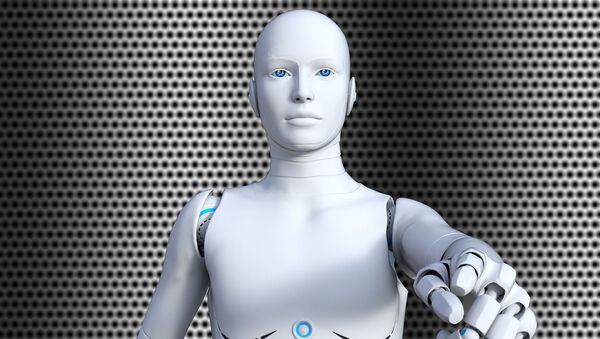Dr Peter Scott-Morgan, an English-American roboticist dying from a devastating incurable illness, is pushing the limits of science by using himself as a guinea pig for becoming a cyborg.
In 2017, Scott-Morgan was diagnosed with terminal motor neurone disease – a condition damaging parts of the nervous system and affecting the body’s ability to function properly.
In his “last post as Peter 1.0,” the 61-year-old tweeted on Tuesday that he is completing his “transition to Full Cyborg.”
THIS IS MY LAST POST as Peter 1.0. Tomorrow I trade my voice for potentially decades of life as we complete the final medical procedure for my transition to Full Cyborg, the month I was told statistically I would be dead. I’m not dying, I’m transforming! Oh, how I LOVE Science!!! pic.twitter.com/xCO17ph0lp
— Dr Peter B Scott-Morgan (@DrScottMorgan) October 9, 2019
The transition process has been underway for over a year now. The scientist, who founded the Scott-Morgan Foundation this summer to promote robotics and AI, has built up an international team of researchers and engineers from tech firms such as Microsoft, Intel and Dell to work on his plan.
The final stage of his ‘transition’ is called laryngectomy, meaning the voice box is surgically removed. This procedure reduces the risk of aspiration because it prevents food, liquids and saliva from going into the lungs and causing pneumonia.
On the downside, he will no longer be able to speak. At least, the way humans speak.
The wheelchair-bound roboticist has spent more than 60 hours recording his voice, sounds and random noise so that the AI could assemble them into a nuanced, human-like speech.
BACK IN RECORDING STUDIO to record 5,000 phrases for brilliant @cereproc to research building extra-high-quality voice as used on SatNavs. Only 43% lung capacity now, but thanks to amazing Mouthpiece Ventilation can still inflate lungs to talk as clearly and for as long as ever! pic.twitter.com/djLsVB4g5f
— Dr Peter B Scott-Morgan (@DrScottMorgan) January 8, 2019
Unlike the late Stephen Hawking, who had “spoken” by building up sentences on the computer screen using eye-tracking technology speaking and had a computer-generated voice reproduce them, Scott-Morgan will choose from a list of responses presented by an AI system.
He says he will be able to chat more fluently than he can now, and his own voice, generated from thousands of words into a fluid speech, will be able to convey emotions, while embedded software will translate the sentences into the languages he doesn’t even know.
Additionally, he has developed a remarkably realistic avatar of his face before his muscles lose the ability to work. The avatar will be mounted on a breastplate and will speak instead of him.
“It goes without saying that all my physical interaction with the world will become robotic. And naturally, my existing five senses are going to be enhanced. But far more importantly, part of my brain, and all of my external persona, will soon be electronic – totally synthetic,” he said.
“From then on, I’ll be part hardware/part wetware, part digital/part analogue. And it won’t stop there; I’ve got more upgrades in progress than Microsoft. Mine isn’t just a version change. It’s a metamorphosis.”
Of course there is a long way to go to the point when humanity learns how to upload human mind to a computer (although research has already started on that idea), but for some time, Scott-Morgan will be the closest thing we can find to the definition of a cyborg.

